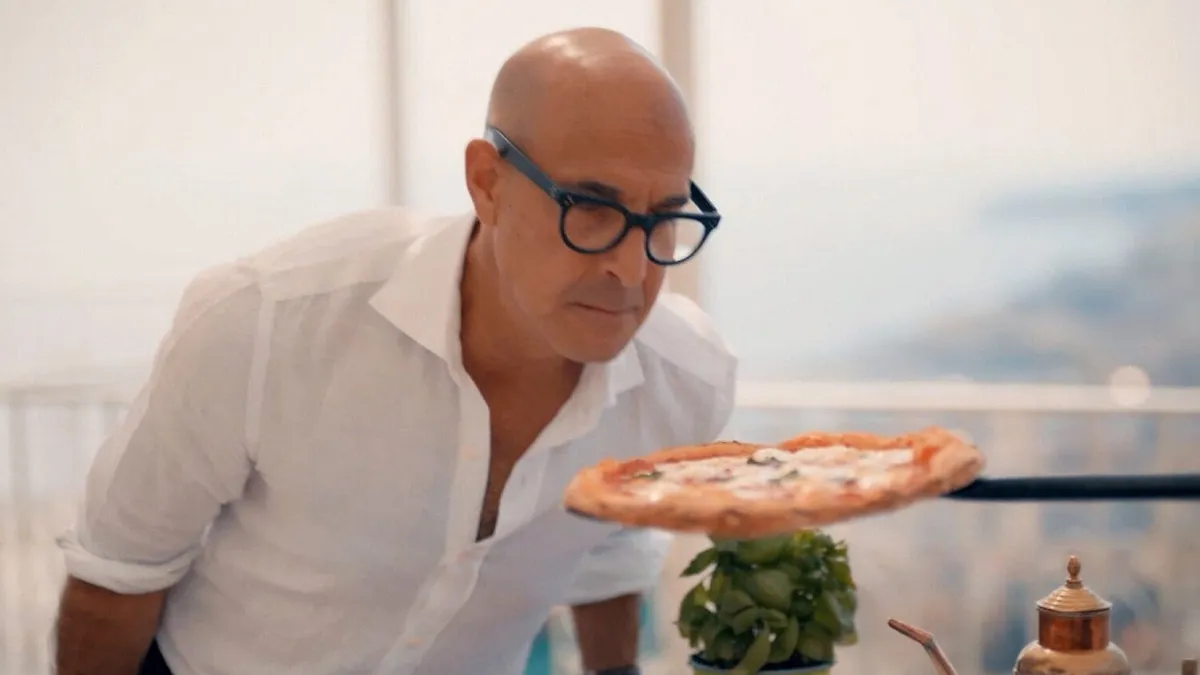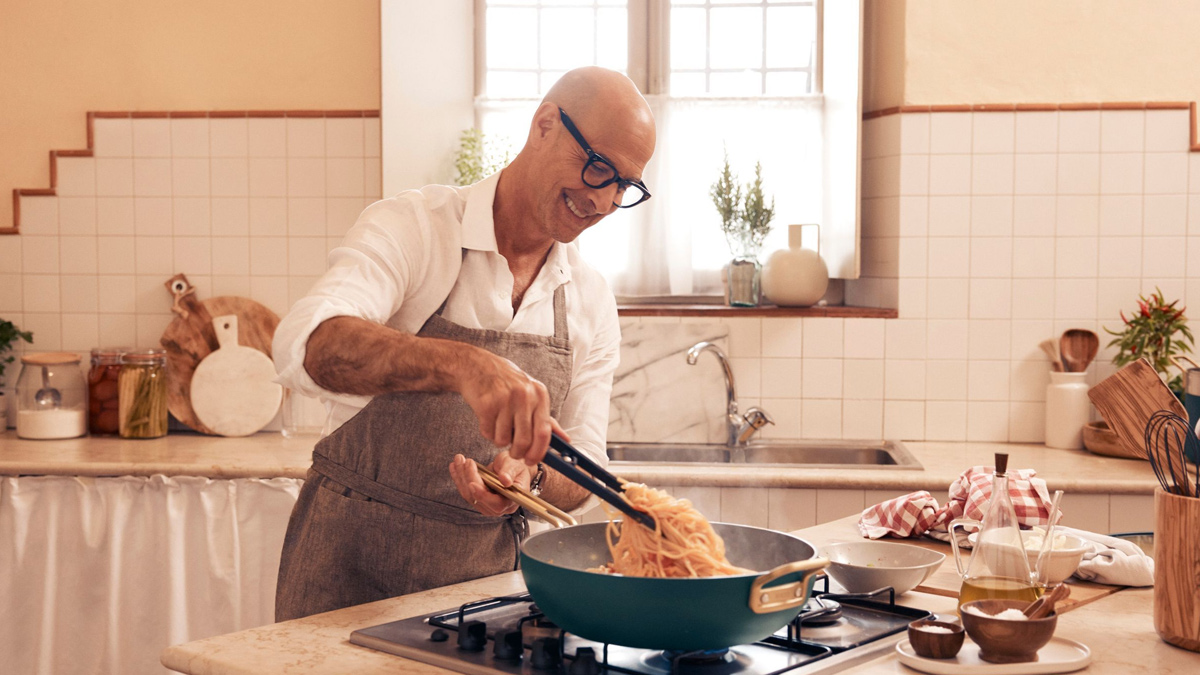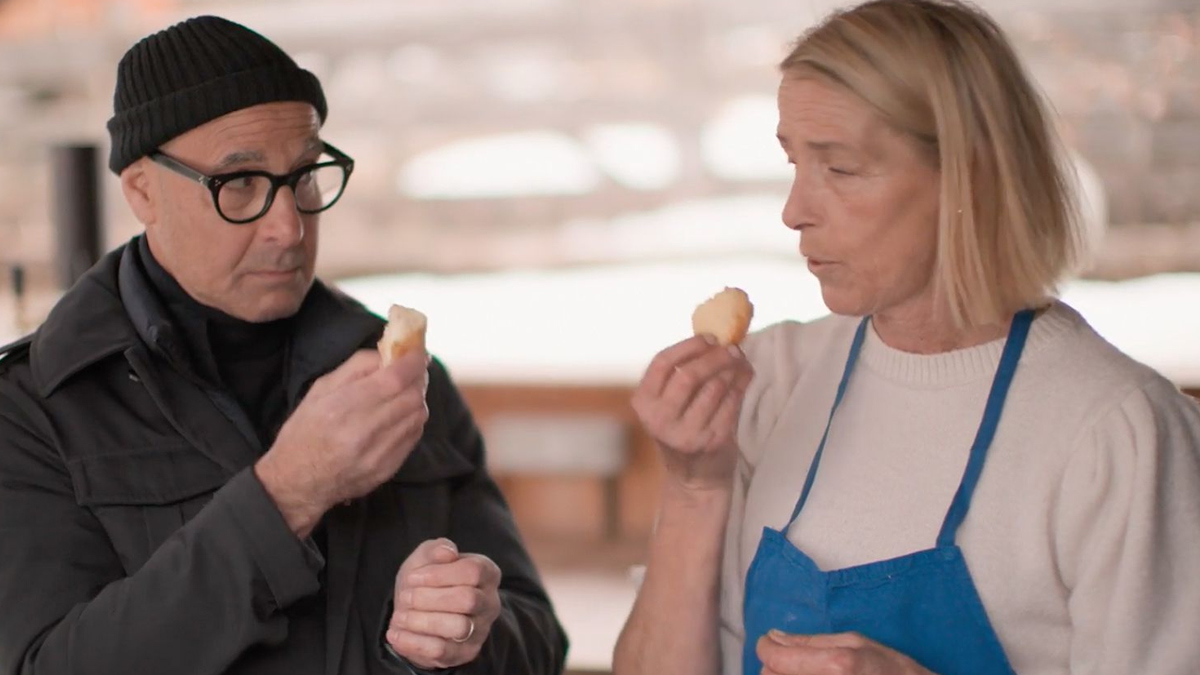
Diets for cancer patients often become a daily challenge, not just because of what they can eat, but also how food tastes. Many people with cancer, especially those undergoing treatment, find that their sense of taste changes or even disappears. This can make eating difficult and take away the joy of food. Actor Stanley Tucci knows this struggle well. After being diagnosed with throat cancer, Tucci went through radiation and chemotherapy treatments that, while life-saving, left his mouth and taste buds destroyed. His experience shines a light on how throat cancer and its treatment can affect taste.
Table of Content:-
Stanley Tucci’s Experience: “Radiation and Chemotherapy Destroyed My Mouth”![Stanley Tucci throat cancer 2 - 2025-05-14T131203.761]()
Stanley Tucci, known for his love of food and his culinary shows, was diagnosed with throat cancer in 2017. The tumour was at the base of his tongue, and it was too large for surgery. Instead, Tucci underwent high-dose radiation and chemotherapy. These treatments were successful in putting his cancer into remission, but they came with severe side effects.
In interviews and podcasts, Tucci has talked openly about his struggles. He lost his sense of taste, developed ulcers in his mouth, and had trouble swallowing. For six months, he relied on a feeding tube. “Radiation and chemotherapy destroyed my mouth,” Tucci said, describing how he couldn’t enjoy food and struggled with fatigue and exhaustion long after treatment ended. Even now, he faces ongoing health issues, including a non-functioning thyroid caused by the radiation.
Does Throat Cancer Affect Taste?![Stanley Tucci throat cancer affect taste 1 - 2025-05-14T131201.858]()
Yes, throat cancer and especially its treatments can greatly affect your sense of taste. Radiation and chemotherapy target cancer cells but also damage healthy cells in the mouth and throat.
Dr Ashok Vaid, Chairman, Medical and Haemato Oncology, Cancer Institute, Medanta - The Medicity, Gurgaon, explains that some chemotherapy drugs can change a person's sense of taste and appetite. They are encouraged to eat small, frequent meals, stay hydrated, and explore various flavours and textures to find what is palatable during treatment.
This condition can also lead to:
- Loss or change of taste (food may taste bland, metallic, or bitter)
- Dry mouth
- Mouth sores or ulcers
- Difficulty swallowing
These side effects can last for months or even years after treatment. For someone like Tucci, whose career and passion are closely tied to food, this loss is especially tough.
Why Does This Happen?![Stanley Tucci throat cancer 4 (39)]()
Radiation damages taste buds and saliva glands, making it hard to taste and swallow. Chemotherapy can also change how the brain interprets taste signals. Over time, some people regain their sense of taste, but for others, the changes can be permanent. A study published in Supportive Care in Cancer found that up to 70% of patients with head and neck cancer experience taste changes during and after treatment. The study showed that taste changes can last for months and may lead to weight loss, poor nutrition, and a lower quality of life.
Conclusion
Stanley Tucci’s story is a reminder that cancer treatment affects more than just the disease. It can change everyday pleasures like eating. Many patients find ways to adapt, such as trying new foods, using more spices, or focusing on texture rather than taste. Support from family and doctors can help, but patience is key.
Throat cancer and its treatments can have a major impact on taste, making eating and enjoying food difficult. Stanley Tucci’s journey shows the emotional and physical toll this can take, even after successful treatment. If you or a loved one is facing similar challenges, know that you are not alone and that, with time and support, it’s possible to find new ways to enjoy food and life.
Also watch this video
How we keep this article up to date:
We work with experts and keep a close eye on the latest in health and wellness. Whenever there is a new research or helpful information, we update our articles with accurate and useful advice.
Current Version



-1747208714811.jpg)